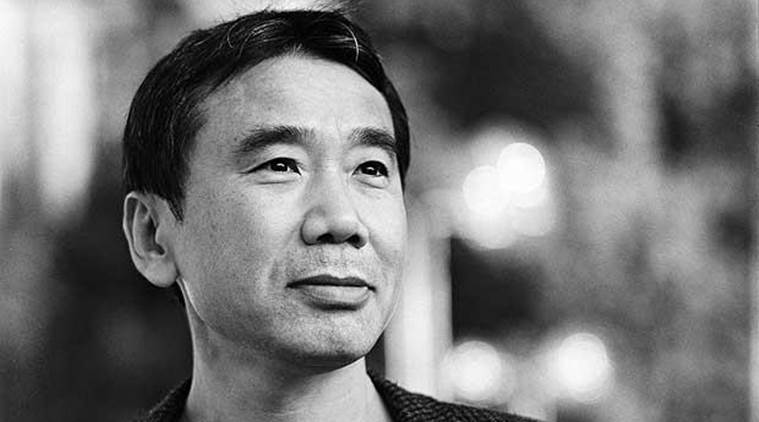- India
- International
Brave New Words
As writers connect with the internet and do away with the traditional formalisms of literature, what new tales are in store for us?
 The future is here: In an interview in 2004, Haruki Murakami drew a parallel between contemporary literature and video games. (Photo: Haruki Murakami/Facebook)
The future is here: In an interview in 2004, Haruki Murakami drew a parallel between contemporary literature and video games. (Photo: Haruki Murakami/Facebook)
Two Indian speakers at this year’s London Book Fair, Chiki Sarkar and Vinutha Mallya, have suggested that some sort of geomagnetic reversal is upon the world of publishing. The cardinal points used to be firmly located in the English-reading world, but now the needle swings erratically to less developed markets like ours, where the numbers are nugatory. Here, an English language book which is well received might sell only 2,000 copies, a figure which would cause a London publisher to reach for the strychnine. At the same time, these are the very regions inclined to leapfrog Gutenberg and embrace electronic distribution to mobile devices.
But if literature is received and read differently, will it be produced differently, too? The current business model requires literary work to be outstanding. Literally, it must stand out. Writing is presented as a strongly individualistic act and publishing celebrates the cult of the individual. The differentiation and deification of the author is its only marketing plan.
On the contrary, what does it take to belong in the spate of multiple data streams which our phones swim in? It is possible that the successful authors of the day after tomorrow will be those who go with the flow and blend well with the data churn, instead of trying to stand apart while yelling, “Look at me! Read me!” They could be collaborative and derivative elements of a creative cloud — fanfic writers already are. Could there be a WordCloud? A decade ago, who would have thought that so much of popular music would be based on loops sampled from SoundCloud?
Is the manner in which literature is created already changing? Long ago in the summer of 2004, in an interview with John Wray for the Paris Review, Haruki Murakami famously drew a parallel between contemporary literature and video games. He elaborated that he does not play them, but ever since William Gibson wrote Neuromancer without owning a computer, we have known that experience only interferes with the imagination. Murakami suggested that literary authors like Franz Kafka flourished in a cultural milieu in which only music and theatre competed for attention with and contributed to literature. Contemporary authors, he argued, are in the swim with “the internet, movies, rental videos and much else.”
Twelve years ago, the internet was still so new and shiny that it was capitalised to the Internet, a location outside of terrestrial geography. Facebook had been launched in February 2004, Twitter and Wattpad were still two years away and Snapchat, the cauldron of evanescent stories, would have to wait until 2011 to be born.

Murakami attributed stylistic innovation to the demise of the leisure class. Kafka’s readers sat through operas because they had hours to spare. Today, finishing War and Peace is statistically improbable and the idea of even starting to read Thorstein Veblen seems onerously incredible. What use is a theory of the leisure class when it has been wiped out by multimedia overload?
Science fiction used to envision a future in which all material work devolves to robots. It did not anticipate that the perception of what constitutes work would change. In the mid 20th century, writing an advertising jingle was work. Writing poetry was not. And poetry critics were regarded with even deeper suspicion, like leeches living off the honest toil of others.
But if people stopped “working” and found the time to create, there would be a glut. EM Forster was one of a very small band of writers who anticipated that a spurt in creative production would exert pressure to consume. In his only work of science fiction, The Machine Stops (published in 1909, available at https://g.co/kgs/8sbj9), he depicts a society relentlessly consuming, sharing, commenting on and repurposing content (to use terms invented on the late Nineties internet) to the extent that meeting physically, even within the family, becomes an irritating distraction. Structurally, the world’s relations are altered, as it has been by contemporary social media.
The difference which Murakami pointed to in his interview is also structural, and refers to a specific difference in the fabric of psychological space-time then and now. Multitasking has annihilated time, turning multimedia inputs into a relentless slideshow which is paused only when we sleep. Space, on the other hand, has been fragmented. “Sometimes, while I’m writing, I feel I’m the designer of a video game, and at the same time, a player,” Murakami told Paris Review. “I made up the program, and now I’m in the middle of it; the left hand doesn’t know what the right hand is doing. It’s a kind of detachment. A feeling of a split.”
The dichotomy is that as the author writes, like the reader, he is eager to discover what happens next — though he has always known in his heart what happens next. As writers connect with the ever-evolving complexity of the internet, there will be more opportunities to break away from the traditional formalisms of literature, and discover new ways to tell of possible worlds.
Apr 26: Latest News
- 01
- 02
- 03
- 04
- 05




































